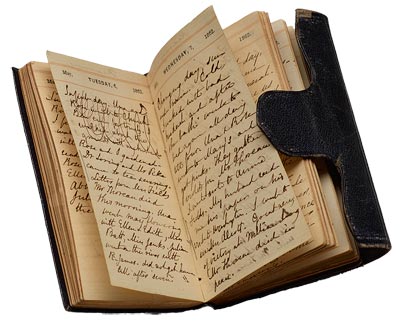What Use a Diary? For Clarifying Life in Words
 Since the beginning of 2014 I’ve managed to keep a diary. I’ve tried to keep a diary since the beginning of many other years – but the reason I never kept it up, I think, is that previously I did not really have much idea of what it was for. Not much idea and therefore little incentive.
Since the beginning of 2014 I’ve managed to keep a diary. I’ve tried to keep a diary since the beginning of many other years – but the reason I never kept it up, I think, is that previously I did not really have much idea of what it was for. Not much idea and therefore little incentive.
By mid-March this year I still did not really know what this diary was for, though had a little more idea. More importantly I had kept writing it, and tried out different formats. Partly I documented routine events, to see how they changed over time (a less visual paper version of data-mining your life), and partly I documented events that were meaningful to me, after reading this. But it was only when I read other people’s diaries (not furtively by rummaging through their bedrooms – published ones) that I saw what I really wanted a diary to be: practice for putting the events of the day into as clear a form as possible – that is, practice for writing.
If a diary is a collection of meaningful events, then the act of writing them down is, like regular routine writing for yourself, honing the ability to put these meaningful events into words. It works differently from a notebook, which is noting things to remember, and more of an end-of-day routine, to clarify meaningful events, and the thoughts and ideas that derive from them, in as few words as possible.
And though private in the first instance, a diary is often the source material for the writing that you will later make public. Musician Courtney Barnett’s acknowledgement of the source of her lyrics:
She keeps notes in a journal every day – she’s kept one since she was a kid – and then sits down with a guitar to “stick them all together into songs”.
Recent links on careers, fulfilling work and writing:
- Dave Eggers on using books to document your life, even when it seems like a big mistake
- Dorothea Brande on stimulating writing with other wordless activities
- Two graduates on living cheaply without feeling poor
- Leonard Cohen on how people with careers can be unemployed
- Geoff Dyer on leaving out the parts of writing that you don’t want to write
- Courtney Barnett on the irrelevance of the size of an audience for the success of worthwhile work (well, my interpretation of her lyrics, anyhow)


